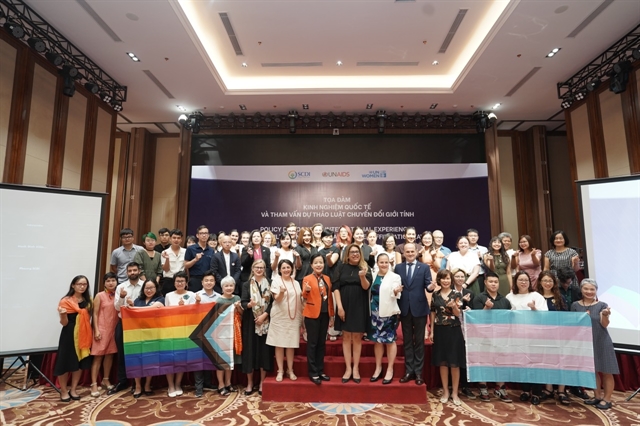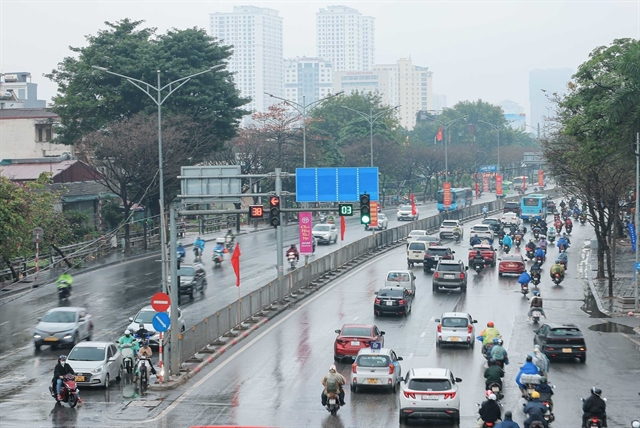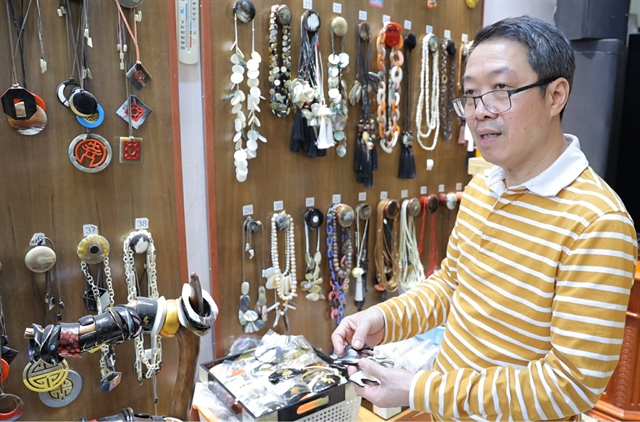 Society
Society

 |
| Scenes at the Policy Dialogue on International Experiences & Consultation on the Draft Gender Affirmation Law organised in Hà Nội on August 26. — Photo UN Women Việt Nam |
HÀ NỘI — Medical interventions are now non-obligatory for people who want to be recognised as transgender, and trans men are eligible for maternity leave should they be pregnant.
These amendments were proposed to the draft Gender Affirmation Law and were discussed during the Policy Dialogue on International Experiences & Consultation on the Draft Gender Affirmation Law organised in Hà Nội last week.
Eighty representatives from the National Assembly, Ministries, NGOs and UN organisations gave their recommendations for the Gender Affirmation Law, which was drafted in June and is being amended by the Ministry of Health to present to the National Assembly Standing Committee this year.
"To recognise, respect and protect human rights and citizens' rights is the Party and the Government's consistent policy," said Nguyễn Thị Kim Thuý, Deputy Chairwoman of the National Assembly's Social Committee.
"Although Việt Nam made progress in ending LGBTQ+ discrimination, especially for transgender people, when the right to change sex was recognised in 2015, the affirmation and recognition of transgender people are currently not applicable in reality. The legal aspects must be improved to make access to social, education, medical and occupational services for transgender people fair," said Thuý.
According to the Ministry of Health, there are currently 480,000 people in Việt Nam who are transgender. They face discrimination in many aspects of life.
Although the right to change sex in Việt Nam has been recognised since 2015, very few transgender people are legally recognised.
Legally accepted sex change surgery in Việt Nam, which is only available in hospitals such as Chợ Rẫy and Bạch Mai, requires the person to have a bodily part that is not of their sex at birth. For example, men with uteruses or vaginas.
This led many Vietnamese transgender people to go abroad or to illegal medical facilities to implement sex change surgery. These surgeries, if not done correctly, can be fatal.
For those who travel to countries such as Thailand for sex change surgery, even if the surgery is successful, their sex change is not legally recognised since the surgery was not conducted in Việt Nam.
The draft Gender Affirmation Law, if finished and approved, could enable transgender people to change and affirm their gender in Việt Nam legally.
"The basic principles are to enable transgender people to live true to themselves, to freely and voluntary access medical interventions, and denounce discriminatory acts towards transgender people and their families," said Phạm Thị Hảo, representative of the Ministry of Health Legal Department.
The Draft Gender Affirmation Law will enable transgender people to apply for recognition without having undergone sex change surgery, and they can choose to have sex change surgery or not.
Familial ties to parents and partners are kept intact, including foster children. All certificates and diplomas' rights are kept, and transgender people will be eligible to compete in sports. They are not obligated to be sterilised in genital operations unless they want to.
Transgender people, according to the draft, should also be able to marry their new gender after recognition. Trans men, should they get pregnant, are eligible for maternity leave according to labour law and social insurance policies.
The draft also forbids human trafficking, sexual assault, and discriminative acts against transgender people, such as expulsion from school or termination of jobs due to being transgender.
Requirements for medical facilities to implement sex change surgery and hormone therapy for sex change are also included in the draft, according to the Ministry of Health. — VNS




